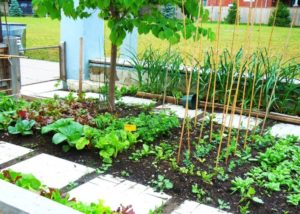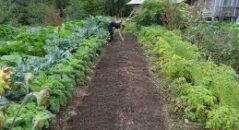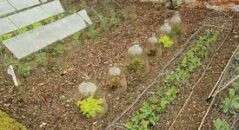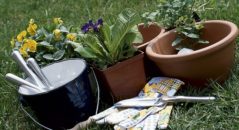When practicing organic gardening it is necessary for you to have an idea about the basic tenets of this type of gardening. The entire procedure is quite simple while the payoffs are enormous. There is complete absence of waste and toxic chemicals and there is absolutely no harm to the environment. Not to mention, you get a crop packed with delicious and natural fruits and vegetables. Some tips that will help you in successful organic gardening are as follows:
Soil
Soil is one of the most important factors that you need to consider when going for organic gardening. It is important for you to amend your garden soil with natural materials like kitchen or yard scrap and compost manure. This helps in offering the plants in the garden with a very strong basis of important nutrients required for growth. This also helps in improving the structure of soil making it very easy for the plants to absorb necessary minerals from soil.

Fertilizer
Apart from compost, plants in the garden enjoy the healthy dosage of organic foodstuffs such as worm pee and poop, Epsom salts, eggshells, blood meal and bone meal. However, you need to pay attention to the fact that everything should be all-natural.
Beneficial Insects
Prior to possessing an organic garden, it is necessary for you to educate yourself on the plants that repel insects, the ones that invite them and the food eaten by bugs. For example, ladybugs take in aphids and this is quite beneficial because aphids suck the life from any plant. So, if you invite ladybugs into your organic garden you will be using a natural method of controlling pests.
Layout
It is necessary for you to follow spacing guidelines when chucking out the design of your organic garden. Always make sure that the plants in your organic garden are planted close to each other. This is because by keeping the plants close to each other, you will be avoiding weed growth. Also, the leaves will offer shade to the ground underneath. This helps the soil in retaining water which further helps in cutting down the use of water. However, at the same time, you also need to ensure that the plants are not planted very close to each other because in case they are very close, they might invite the growth of disease and fungus.
Companion Planting
Having different varieties of plants on your organic garden and planting them as per their relationships with the others can help in different ways. As for example, bean plants help in fixing nitrogen into soil and this is used by corn plants for producing top quality cobs.
Weeds
It is best to remove weed manually without making use of harmful chemicals. This might be a little difficult and you can cut down on this tedious job by practicing smart planting. Natural mulch is one method that helps in preventing the growth of weeds and offers the soil required nutrients.
Conclusion
Organic gardening is about healthy and sustainable practices. This type of gardening is conservation at its very best.




